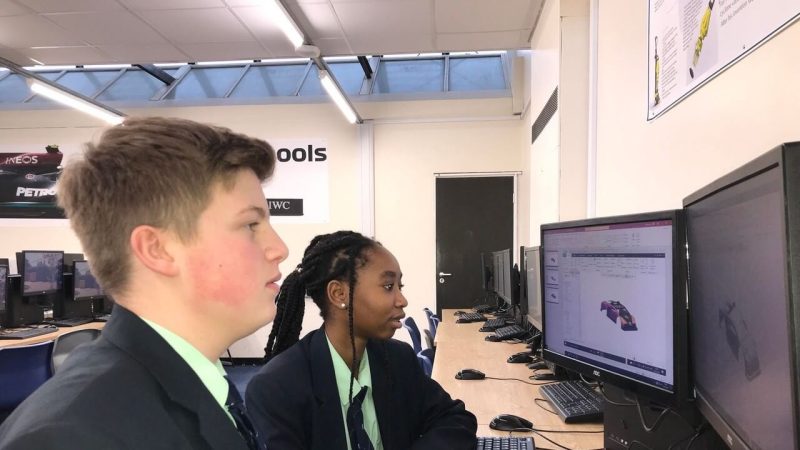Science, engineering and inclusion – Let’s tackle the STEM gender gap

Garath Rawson outlines the steps Doncaster University Technical College has taken to increase female participation in STEM subjects

As a UTC, we are a government-funded, 13- to 19-year-old provision. We offer a blend of academic and technical education, specialising in engineering and creative and digital technologies, while ensuring that we target local skills gaps in order to retain talent locally.
Since opening, I’ve developed a multi-pronged, long-term approach to diversifying our classrooms, which I hope other schools and colleges can adopt. Here’s how we actively encourage women to go into STEM.
Role models
The GCSE science curriculum currently mentions 20 male scientists and not a single woman, reflecting society’s wider disinterest in female leaders in this area.
This invisibility can make female students feel they’re not welcome, since their achievements likely won’t be recognised, or that this simply isn’t an appropriate career for them to follow. Schools can help rectify this by shining a light on how the achievements of notable female inventors, physicists, engineers and biologists have shaped the world.
Sharing videos on platforms such as ClickView about these role models can humanise their stories, making a real impact on students and shattering misconceptions. Schools can also consider their internal role models. At Doncaster UTC, for example, both curriculum directors for science and engineering are female.
Career options
Many students don’t appreciate how many doors a STEM qualification can open. Some assume that engineering students are destined to be car mechanics, or that computer science students have to become IT technicians, but this couldn’t be further from the truth.
In reality, STEM qualifications can lead to a veritable smorgasbord of careers, ranging from research, management and sales roles, to jobs within the medical sector or aeronautics industry. Once aware of the exciting and multifaceted STEM career options potentially at their fingertips, students will be more inclined to explore them further.
Schools can also help change the androcentric narrative. Traditionally, STEM subjects are discussed and taught through an androcentric lens, revolving around traditionally ‘masculine’ topics, such as cars, rockets, construction, finance and explosions. This fuels outdated stereotypes, and risks making STEM seem uninviting to those many individuals who can’t relate to said topics.
STEM is about so much more. It spans renewable energy creation and development, architectural structures (both new and ancient), interface design, logos and branding. By rethinking the androcentric narrative, we can encourage many more students to embrace STEM subjects.
Work with parents
Gender stereotypes are powerful and persistent but by working with parents, we can break the mould and ensure that today’s young people can realise their potential in STEM careers, regardless of gender. With strong familial support, female students are much more likely to flourish in STEM subjects.
Schools can help by sharing curriculum developments with parents via newsletters, highlighting notable female STEM professionals and perhaps passing on messages from those professionals that will help widen students’ understanding of the field they work in.
There’s a need for significant changes in the way STEM is taught in schools, and we’re proud to be leading that change. Doncaster UTC is currently working with other schools across the Brighter Futures Learning Partnership Trust, sharing our gender-balanced resources and best practice, and I hope the strategies that emerge will help more schools tackle STEM stereotypes on a much wider scale.
Schools have a responsibility to give all students the best opportunities possible. For us, that starts with tackling the STEM gender gap in our classrooms.
Garath Rawson is the principal at Doncaster University Technical College; for more information, visit doncasterutc.co.uk or follow @doncaster_utc












